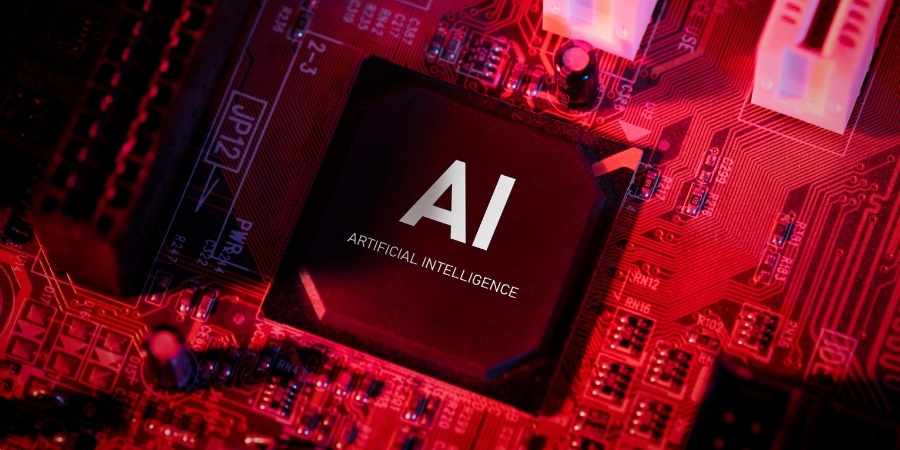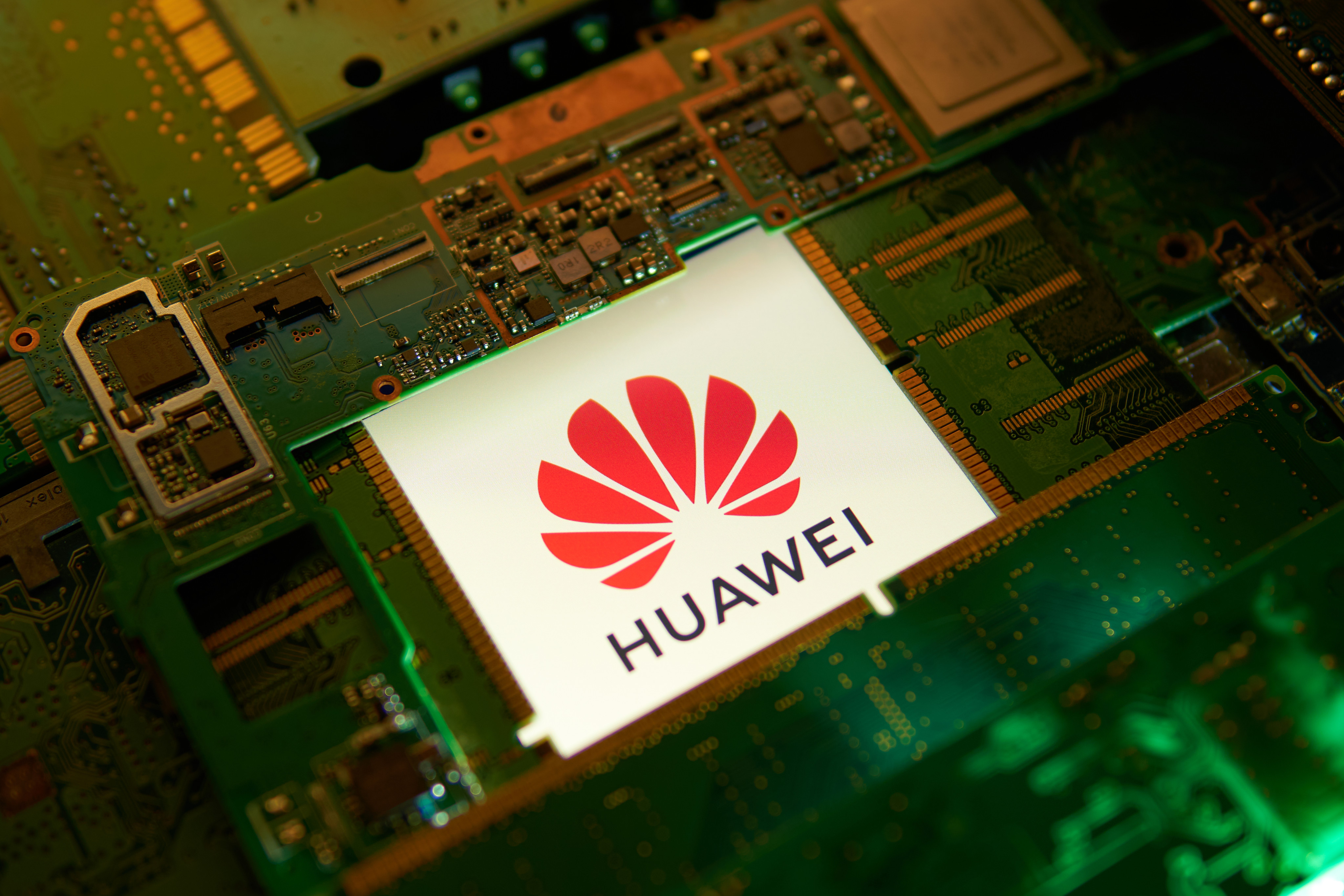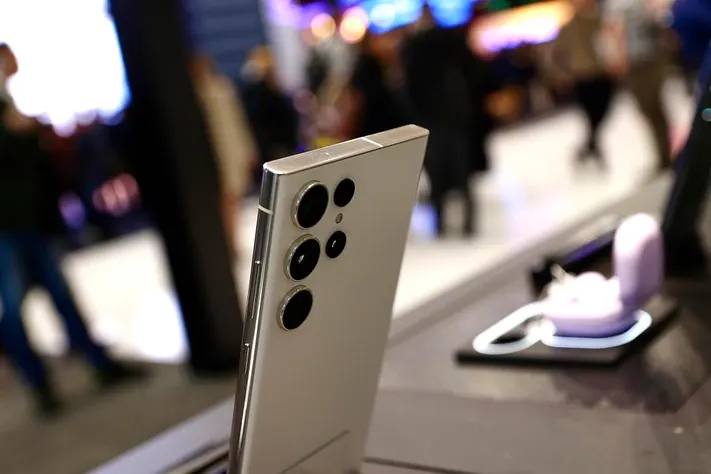“`html
The Dawn of Intelligent Mobile Devices
Estimated reading time: 10 minutes
Key Takeaways
- Artificial Intelligence (AI) is rapidly transitioning from a futuristic concept to an integral part of modern technology, profoundly impacting our daily lives.
- The phrase “**AI chips for smartphones future**” is central to understanding the evolution of mobile device capabilities and intelligence.
- The blog post explores **AI chip innovation 2025**, focusing on how advancements will redefine user experience, with a special look at **Google AI smartphone integration**.
- The future of smartphones is being transformed by AI chip innovation, with 2025 marking a pivotal year for advancements that will reshape user experiences, performance, and on-device intelligence. Source: byteplus.com, voi.id, codedesign.ai.
Table of contents
- The Dawn of Intelligent Mobile Devices
- Key Takeaways
- Understanding the Engine: What are AI Chips and Why They Matter for Smartphones?
- Pioneering the Next Wave: Key Players and Their Innovations Shaping AI Chip Advancement
- Seamless Integration: The Evolving Role of AI in Smartphone Ecosystems
- Transforming the User Experience: Tangible Benefits of Advanced AI Chips
- Navigating the Hurdles: Challenges and the Future Trajectory of AI Chip Development
- Concluding Thoughts: The Intelligent Pocket Companion
The ubiquitous nature of smartphones has cemented them as indispensable tools in our modern lives. However, what truly elevates these devices beyond mere communication tools is the rapidly evolving power of Artificial Intelligence (AI). AI is no longer a distant dream of science fiction; it’s woven into the fabric of our daily digital interactions. From suggesting the next word in a text message to recognizing faces in photos, AI is quietly and efficiently enhancing our experiences. The forefront of this AI revolution in mobile technology lies in the development of specialized hardware: **AI chips for smartphones**. These powerful processors are the engine driving the intelligence, responsiveness, and innovative features we’ve come to expect, and will increasingly rely on, from our handheld devices. As we look towards the horizon, **AI chip innovation 2025** promises to usher in a new era of mobile computing, fundamentally reshaping how we interact with our smartphones. This exploration will delve into the exciting landscape of AI chip advancements, with a particular focus on how entities like **Google AI smartphone integration** are pioneering these transformative changes.

Understanding the Engine: What are AI Chips and Why They Matter for Smartphones?
At the heart of every intelligent smartphone lies a specialized piece of silicon: the AI chip. But what exactly are these chips, and why are they so critical for the future of mobile devices? Essentially, AI chips are advanced processors, often referred to as Neural Processing Units (NPUs) or AI accelerators, meticulously engineered to perform complex machine learning algorithms with remarkable efficiency. Unlike traditional Central Processing Units (CPUs) or Graphics Processing Units (GPUs) that handle a wide range of tasks, NPUs are purpose-built for the unique computational demands of AI. This specialization allows them to excel at tasks such as pattern recognition, data analysis, and predictive modeling – the very foundation of artificial intelligence.
The functions performed by these specialized chips are transformative for the smartphone user experience. They are the silent powerhouses behind features that were once the realm of high-end computing:
- * Real-time Language Translation: Imagine conversing with someone in a foreign language, with your phone instantly translating spoken words or text, making global communication seamless.
- * Advanced Image Recognition: From identifying objects in a photo to enhancing image quality in real-time for stunning pictures, AI chips are crucial for visual intelligence.
- * Predictive Experience Modeling: Your phone learning your habits to anticipate your needs, such as pre-loading frequently used apps or suggesting relevant information before you even ask.
The importance of AI chips for modern devices cannot be overstated. Their primary advantage lies in their ability to execute AI tasks with significantly lower power consumption and at much higher speeds compared to general-purpose processors. This efficiency is paramount for battery-powered devices like smartphones. By offloading AI computations to dedicated NPUs, smartphones can offer smoother overall performance, support more sophisticated on-device intelligence, and extend battery life. This means features like adaptive resource allocation, which intelligently manages power based on usage, and real-time user behavior analysis, which helps personalize the experience, become not just possible, but practical and efficient. Source: byteplus.com, voi.id, everphone.com.

Pioneering the Next Wave: Key Players and Their Innovations Shaping AI Chip Advancement
The landscape of AI chip development is a dynamic arena, with major technology players investing heavily in pushing the boundaries of what’s possible. Their innovations are not just incremental improvements; they are laying the groundwork for the next generation of intelligent mobile devices.
Nvidia AI Advancements
While Nvidia is perhaps most recognized for its powerful GPUs used in gaming and data centers, its contributions to AI are foundational and have a significant ripple effect on the mobile sector. Nvidia’s pioneering work in developing architectures optimized for artificial intelligence, particularly for inference (the process of running trained AI models), serves as a crucial blueprint. Technologies like their Tensor Cores, designed to accelerate matrix multiplication – a core operation in deep learning – demonstrate architectural principles that inspire and inform the design of more efficient and sophisticated NPUs for smartphones. Though their primary focus remains on larger-scale computing, Nvidia’s architectural innovations and robust software development kits (SDKs) provide essential insights and a benchmark for the industry, influencing how on-device AI capabilities are conceived and implemented. Source: voi.id, everphone.com.
TSMC 2nm Chip Benefits
Taiwan Semiconductor Manufacturing Company (TSMC) is the world’s leading contract chip manufacturer, and its advancements in process technology are critical enablers for cutting-edge AI chips. The transition to more advanced manufacturing nodes, such as the **TSMC 2nm chip benefits**, represents a significant leap forward. Smaller process nodes mean transistors can be packed more densely onto a chip. This density translates into several key advantages for smartphones:
- * Increased Performance: More transistors allow for more complex and powerful processing units, leading to faster AI computations.
- * Enhanced Power Efficiency: Smaller transistors typically consume less power, which is vital for extending battery life in mobile devices.
- * Reduced Size and Heat: Denser chips can lead to smaller overall component sizes and potentially better thermal management, allowing for thinner device designs.
For smartphones, the **TSMC 2nm chip benefits** directly translate into faster on-device AI processing, smoother multitasking, longer battery life, and the potential for more innovative, sleeker device form factors. Source: everphone.com.

Arm Lumex Offline AI
Arm Holdings designs the architecture that powers the vast majority of the world’s smartphones. Their ongoing development of specialized solutions for AI is therefore profoundly impactful. **Arm Lumex offline AI** represents a significant focus on enabling dedicated on-device AI acceleration. The ability for AI to function entirely offline, without requiring a constant internet connection, offers a wealth of advantages. Firstly, it drastically enhances user privacy, as sensitive data and computations remain on the device rather than being sent to the cloud. Secondly, it dramatically reduces latency, meaning AI tasks complete almost instantaneously. This is crucial for features like real-time photo and video editing, instant language translation during a conversation, and voice assistance that responds without a perceptible delay. **Arm Lumex offline AI** capabilities are essential for unlocking a more responsive, private, and ubiquitous AI experience on smartphones. Source: everphone.com.
Seamless Integration: The Evolving Role of AI in Smartphone Ecosystems
The true power of AI chips is realized when they are seamlessly integrated into the broader smartphone ecosystem, enhancing the user experience through intelligent software and hardware synergy. Leading tech giants are not just developing better chips; they are rethinking how AI can fundamentally improve the entire device experience.
Google AI Smartphone Integration
**Google AI smartphone integration** is a prime example of how a company is leveraging its AI prowess to redefine mobile technology, particularly evident in its Pixel line of smartphones. Google’s approach involves deep integration of AI across various functions, from camera capabilities to digital assistance, powered by both their custom Tensor chips and sophisticated software.
- * Advanced Computational Photography: Google has long been at the forefront of using AI to overcome the physical limitations of smartphone cameras. Features like Real Tone, which accurately captures diverse skin tones, Night Sight for incredible low-light photography, and Magic Eraser for removing unwanted objects from photos are all powered by AI algorithms running on-device. These capabilities leverage local AI chips to perform real-time image enhancement, scene understanding, and sophisticated processing, resulting in professional-grade photos with minimal user effort. Source: byteplus.com, codedesign.ai.
- * Proactive Digital Assistants: Google Assistant is becoming increasingly intelligent and proactive, thanks to advanced AI. It can now engage in more natural, conversational interactions, understand complex multi-step commands, and even automate tasks like planning itineraries based on email information. This enhanced context awareness and what could be termed “emotional intelligence” allow the assistant to offer more personalized wellbeing suggestions and provide help before you even explicitly ask for it. Source: byteplus.com, everphone.com, codedesign.ai.

AI Chip Innovation 2025
Looking ahead to **AI chip innovation 2025**, the advancements are poised to deliver even more groundbreaking capabilities directly to our smartphones. The focus is shifting towards more sophisticated AI models that can run efficiently on device, transforming everyday interactions.
- * On-Device Generative AI: The ability for AI to generate new content – text, images, and even code – directly on the device is a significant upcoming trend. This could enable features like real-time subtitle creation for any video, personalized content generation, and entirely new creative tools that operate instantly and privately. Source: everphone.com.
- * Personalized User Experiences: AI will enable hyper-personalization across the entire smartphone interface. This means interfaces that adapt to your preferences, apps that launch predictively before you even tap them, and adaptive UI layouts that change based on your current context (e.g., at work, at home, driving). This level of personalization will make smartphones feel more intuitive and tailored to individual users than ever before. Source: byteplus.com, everphone.com.
- * Offline AI Processing: The trend towards more robust offline AI processing will continue to grow, driven by advancements in NPUs found in processors like Apple’s Neural Engine and Qualcomm’s Snapdragon NPUs. This emphasis on offline capabilities, a key aspect of the **AI chip innovation 2025** landscape, means enhanced privacy and instantaneous results for a wider range of AI tasks, reducing reliance on cloud connectivity. Source: voi.id, everphone.com.
Transforming the User Experience: Tangible Benefits of Advanced AI Chips
The sophisticated advancements in AI chips are not just theoretical possibilities; they translate into concrete, high-value benefits that directly enhance the daily lives of smartphone users. These are the tangible improvements that make intelligent mobile devices truly indispensable.
Consider the everyday benefits that are already here or rapidly emerging:
- * Smarter Cameras and Video: Gone are the days of simply pointing and shooting. Modern smartphones, powered by AI chips, offer professional-grade image and video capture. This includes real-time effect generation, automatic scene optimization, intelligent object tracking for smoother video, and advanced computational photography techniques that produce stunning results effortlessly. Source: byteplus.com, voi.id, codedesign.ai.
- * Intuitive Voice and Assistant Features: Voice assistants are evolving beyond simple command execution. AI chips enable them to better understand nuances in speech, recognize emotional tone, handle more complex, multi-turn conversations, and offer proactive assistance. This includes features like intelligent wellbeing tracking, personalized health insights, and context-aware reminders that genuinely simplify life. Source: everphone.com, codedesign.ai.
- * Enhanced Gaming: Mobile gaming is becoming increasingly sophisticated, and AI chips play a crucial role. They enable AI-driven graphics optimization, allowing for more realistic visuals and dynamic scene rendering. Adaptive resource allocation ensures that the game performs smoothly by intelligently managing processing power, leading to a more immersive and responsive gaming experience. Source: byteplus.com, codedesign.ai.
- * Superior Battery Management: Battery life remains a critical concern for smartphone users. Advanced AI chips utilize predictive models to understand usage patterns and optimize charging cycles. This intelligent management extends battery longevity, ensuring devices last longer throughout the day and maintain their battery health over time. Source: byteplus.com.
- * Personalized Recommendations: From app suggestions to content feeds and even shopping recommendations, AI chips enable a deeper level of personalization. By analyzing user behavior, current context, and historical data, smartphones can offer highly tailored suggestions that are relevant and useful, making the digital experience more efficient and enjoyable. Source: byteplus.com, everphone.com.

Navigating the Hurdles: Challenges and the Future Trajectory of AI Chip Development
While the progress in AI chip development for smartphones is remarkable, the path forward is not without its challenges. Overcoming these hurdles is essential for realizing the full potential of on-device AI.
Key challenges that developers and manufacturers are grappling with include:
- * Heat and Power Constraints: As AI processing power increases, so does the heat generated and the power consumed. Packing increasingly potent AI capabilities into the compact, thin form factor of smartphones creates significant challenges in thermal management and battery endurance. Innovations in cooling technologies and highly energy-efficient chip architectures are crucial for addressing this. Source: voi.id, everphone.com.
- * Cost and Accessibility: Developing and manufacturing advanced AI chips is an expensive endeavor. The R&D investment, coupled with the complexities of cutting-edge fabrication processes like 2nm, can lead to higher device prices. This raises concerns about creating a premium tier for smartphones with advanced AI capabilities, potentially limiting access for some consumers. Source: voi.id.
- * Evolving Software and Developer Access: For AI to truly flourish on smartphones, robust software frameworks and open access for developers are necessary. However, certain ecosystem restrictions or proprietary limitations on how third-party applications can utilize advanced AI hardware can slow down innovation across specific app categories. Ensuring open and flexible development environments is key to unlocking diverse AI applications. Source: voi.id.
Looking beyond 2025, the trajectory of AI chip development is clear: **AI chips will continue to blur the lines between cloud and edge intelligence**. This means more sophisticated processing will happen directly on our devices, enabling even smarter, more adaptive, and seamlessly integrated personal technology. The **AI chips for smartphones future** points towards devices that not only respond to our commands but anticipate our needs, offering a truly personalized and intuitive digital companion.

Concluding Thoughts: The Intelligent Pocket Companion
The relentless march of **AI chip innovation** is undeniably the driving force behind the ongoing revolution in smartphone technology. What began as a vision for smarter devices is rapidly becoming a reality, transforming our smartphones from communication tools into intelligent pocket companions. The next wave of advancements, exemplified by the significant **TSMC 2nm chip benefits** and the strategic importance of **Arm Lumex offline AI** capabilities, promises not only enhanced performance and deeper personalization but also crucial improvements in user privacy and overall device efficiency.
With industry leaders like Google, Apple, and Samsung continuously pushing the boundaries of **Google AI smartphone integration** and on-device intelligence, the future is bright. The integration of AI into the very core of our mobile devices will continue to fundamentally reshape how we live, work, and create, solidifying the trajectory of the **AI chips for smartphones future** for years to come. Source: byteplus.com, everphone.com, codedesign.ai.

Frequently Asked Questions
Q1: What is the main advantage of AI chips in smartphones?
A1: The main advantage is their specialized design to efficiently and rapidly execute machine learning tasks, leading to faster performance, lower power consumption, and enabling advanced AI features directly on the device. Source: byteplus.com.
Q2: How will AI chip innovation in 2025 impact the average user?
A2: Users can expect more personalized experiences, enhanced camera capabilities, more intuitive voice assistants, and the potential for on-device generative AI features, all while benefiting from improved privacy and efficiency. Source: everphone.com.
Q3: Is offline AI processing a significant trend for the future of smartphones?
A3: Yes, offline AI processing is a major trend, offering enhanced privacy and reduced latency for AI tasks. This is driven by advancements in NPUs that allow complex AI computations to be performed without an internet connection. Source: everphone.com.
Q4: What challenges do AI chip manufacturers face?
A4: Key challenges include managing heat and power constraints in compact devices, the high cost of development and manufacturing, and ensuring flexible software ecosystems for developers to leverage AI hardware. Source: voi.id.
Q5: How is Google integrating AI into its smartphones?
A5: Google integrates AI deeply through custom chips (like Tensor) and software, powering features like advanced computational photography, proactive digital assistants, and personalized user experiences within its Pixel devices. Source: byteplus.com, codedesign.ai.





“`



